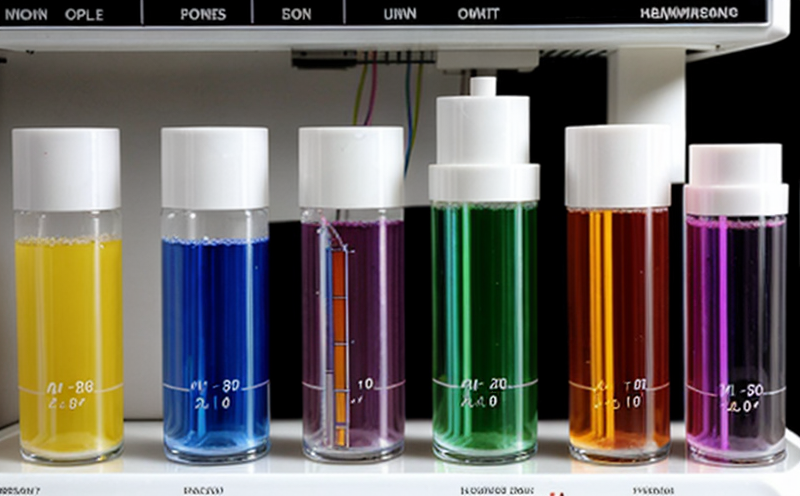ASTM D5768 Nitrogen Compound Testing by Chromatography
The ASTM D5768 standard specifies a method for determining nitrogen compounds in diesel fuel using gas chromatography. This test is critical for ensuring compliance with emissions regulations and quality standards, particularly as the transportation industry shifts toward cleaner fuels.
In this process, the sample diesel fuel undergoes several preparatory steps to ensure accurate results. Pre-treatment involves degassing, filtration, and possibly dilution if the fuel contains high levels of nitrogen compounds. The prepared sample is then injected into a gas chromatograph equipped with a nitrogen-selective detector (ND). This instrument separates components based on their polarity and volatility.
The separation process allows for precise quantification of various nitrogen-containing compounds, including amine, nitrate esters, nitrites, and other trace contaminants. The ND detects these compounds by measuring the change in electrical conductivity as they pass through the detector cell.
Following chromatography, a trained analyst interprets the chromatogram to identify peaks corresponding to different nitrogen compounds. Quantitative data is derived from calibration curves prepared with known standards of each compound. This method provides high sensitivity and accuracy, making it suitable for detecting even trace amounts of nitrogen compounds.
The ASTM D5768 test is widely used in the petroleum industry to monitor fuel quality and ensure compliance with emission regulations such as the Euro 6 standard. Compliance with these standards helps reduce harmful emissions from diesel engines, contributing to improved air quality and environmental sustainability.
Quality managers and compliance officers rely on this testing method to maintain regulatory adherence and ensure product quality. R&D engineers use it to optimize fuel formulations for better performance and efficiency. Procurement teams utilize the results to assess supplier reliability and ensure consistent fuel quality across batches.
- Customer Impact: Ensures compliance with stringent emission regulations, improving air quality and environmental impact.
- Supplier Reliability: Provides a benchmark for evaluating the consistency of nitrogen compound levels in fuel supplies.
- Product Quality Assurance: Offers data to support claims about fuel purity and performance.
Eurolab Advantages
At Eurolab, our expertise in chromatographic analysis ensures that we provide reliable, accurate results for ASTM D5768 testing. Our state-of-the-art laboratory facilities are equipped with advanced gas chromatographs and nitrogen-selective detectors to meet the highest standards of precision.
We employ experienced analysts who possess extensive knowledge of fuel chemistry and chromatographic techniques. This ensures that every sample is handled meticulously, from initial preparation through final analysis. Our commitment to quality control is reflected in our strict adherence to ASTM D5768 guidelines and ISO 17025 accreditation.
We also offer rapid turnaround times, enabling clients to receive test results promptly. This is particularly valuable for those working in time-sensitive environments such as compliance departments or R&D teams. Additionally, Eurolab provides comprehensive reporting services that include detailed chromatograms and quantitative data, facilitating easier interpretation of results.
Quality and Reliability Assurance
Eurolab is dedicated to maintaining the highest standards of quality in all our testing processes. Our laboratories are fully accredited under ISO 17025, ensuring that we meet international requirements for competence in testing and calibration services.
We have implemented robust quality management systems to ensure consistent accuracy and precision in every ASTM D5768 test performed. This includes regular calibration of our instruments and continuous training for our analysts to stay updated with the latest methodologies and best practices.
The results from Eurolab’s laboratories are trusted by leading companies across various sectors, including automotive manufacturers, fuel distributors, and environmental agencies. Our reputation is built on delivering reliable data that can be used confidently in regulatory submissions or internal decision-making processes.





